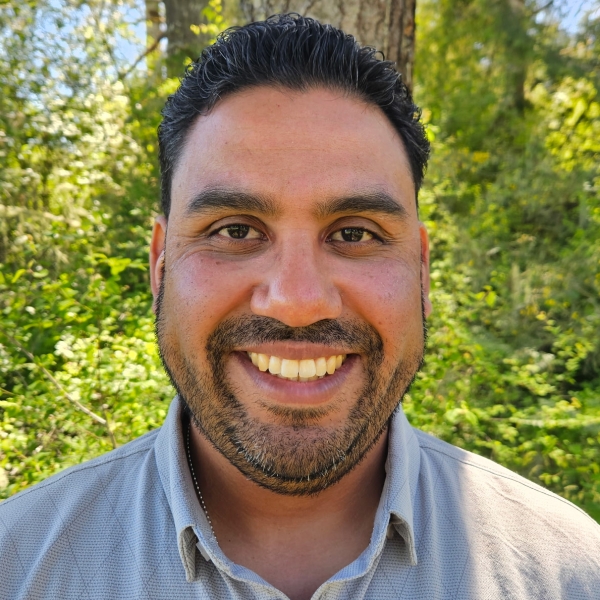The death of a loved one is a significant, emotional event. No matter how much someone might try to prepare for it, it still hits people hard. Death is a reality for us all, yet being able to process the death of a loved one is difficult. Though some close friends or family members mean well, their efforts to cheer a grieving person can at times cause more harm than good.
It’s okay to be unsure of how to support a grieving friend, because nothing truly prepares us to deal with death and loss. There are times when we wish we could take the pain away from our grieving loved ones, and other times when we cannot understand the emotions or inner processes of a grieving person.
Not being able to relate to a grieving person’s feelings or emotions can be uncomfortable, as people can feel powerless to help or “cheer them up.” Some may say things like, “God just needed another angel in heaven,” or “At least they are no longer suffering.” These phrases can be more harmful than good and can be considered toxic positivity.
Toxic positivity invalidates a person’s pain and overgeneralizes a person’s experience, even when we intend to bring them comfort. Supporting a loved one through grief is an opportunity to grow beyond using platitudes and simplistic encouragement so that we can become stable sources of comfort in pain.
What’s so toxic about positivity?
There are times when a person is grieving when a kind word or giving a Scripture reference, such as “Blessed are those who mourn, for they shall be comforted” (Matthew 5:4), can bring a form of comfort and hope when given at an appropriate time with a sincere heart. Toxic positivity, however, is more than just fumbled words; it is a harmful mindset that propagates trauma.
 Some people never learn to feel their feelings. They intellectualize their emotions and experiences and attempt to explain them or justify them. While this is a common habit, it is also a sign of unresolved trauma and, in many cases, emotional dysregulation.
Some people never learn to feel their feelings. They intellectualize their emotions and experiences and attempt to explain them or justify them. While this is a common habit, it is also a sign of unresolved trauma and, in many cases, emotional dysregulation.
There are many instances where people reject emotions and feelings entirely. They might have been taught to elevate “common sense” and rationality over feelings, deeming emotions as untrustworthy or unreliable. Others have been taught that some emotions are positive and acceptable, while others are negative and must never be felt.
The truth is that all emotions are neutral and helpful. Emotions are responses to things that happen, and in life, not everything that happens is good or desirable. A person might celebrate getting a job they longed for, or the birth of a new family member, but be upset when things don’t go their way.
Grief is a time in a person’s life when they feel the broadest spectrum of emotions, sometimes simultaneously. It can be confusing and disorienting to rapidly switch from one emotion to the next, but that is a common and normal experience during grief.
Death and loss are not positive things, and a person should not be made to feel as if they were. The appropriate emotional response to death is devastation, sadness, outrage, confusion, despair, and bitterness.
To tell someone who has just lost a loved one that “Everything happens for a reason” or “This will pass in time” is not helpful; it’s rather cruel and heartless. This is because grief is a process, and phrases like these undercut the emotional circle of healing that one goes through during a time of loss, and can keep a person from fully processing their emotions.
Grief is something that people learn to live with. It is not something they can ever “get over” or see the positive side of. People use these kinds of words as a coping mechanism because they really do not know what to do or say when a loved one is grieving, but think they need to do or say something.
Others who have not dealt with their own personal trauma use toxic positivity to avoid their own unprocessed trauma, or just feel uncomfortable coming to grips with their own mortality.
 Being able to support others during a time of grief can be a great blessing for both the grieving individual and you. This is because you are forced to really process your own emotions and become more emotionally mature, which allows for genuine emotional health. This allows you to really be present in a grieving person’s life in their season of mourning.
Being able to support others during a time of grief can be a great blessing for both the grieving individual and you. This is because you are forced to really process your own emotions and become more emotionally mature, which allows for genuine emotional health. This allows you to really be present in a grieving person’s life in their season of mourning.
Unlike genuine encouragement and comfort, toxic positivity offers heartless and generic statements of support that only serve to invalidate, deny, demonize, or diminish a person’s painful experience.
Rather than acknowledging the vulnerable human experience that happens in grief, toxic positivity promotes ideals that sound better on paper than they are in practice. Courage, endurance, and resilience are noble qualities, but they are not necessary to amplify in a grieving person.
We would like to think that our hearts are in the right place as we tell our grieving friends to be strong and hopeful, but we would serve them better if we examined our hearts before opening our mouths.
Avoiding Toxic Positivity
If we want to connect with anyone in an impactful way, it is a good rule of thumb to mirror their attitude. Jesus said it best when He echoed the Old Testament writer who said, “I oppose the proud, but give grace to the humble.” Grief humbles a person more than any other experience. Grieving people are brokenhearted, soft, and vulnerable. We will not connect with them if we approach them with attitudes that are bold, self-assured, and philosophical.
We must be gentle, patient, and kind with the ones who are hurting. It is damaging to say, “Everything happens for a reason,” because that makes their loved one’s death sound like a positive thing. Death doesn’t have to have a reason, and it’s devastating that they have been parted. Instead, you could tell them exactly that: “I don’t know why this happened, and I’m sorry you lost them.”
“At least they’re in a better place” sounds good in theory, but the grieving person could argue that it was better before their loved one died. Similarly, the phrase, “At least they are not suffering anymore,” is a loaded statement that carries no comfort and ignores the fact that now your friend is the one suffering.
 It is better to acknowledge the gap left behind and how much of an impact they made. Try to recall a personal way their loved one impacted your life. Share any anecdote you can think of about them. This is a more personal form of encouragement because it focuses on the lost loved one rather than offering a cliché or loaded sentiment.
It is better to acknowledge the gap left behind and how much of an impact they made. Try to recall a personal way their loved one impacted your life. Share any anecdote you can think of about them. This is a more personal form of encouragement because it focuses on the lost loved one rather than offering a cliché or loaded sentiment.
A common form of toxic positivity comes in the statement, “They wouldn’t want you to be sad.” Peeling back the sentiment of this sentence, what is essentially being said is that the griever must feel guilty for feeling sad, even though sadness is the core component of grief. Instead, we could say, “I’m sorry you have to go through this.” With this statement, we are quietly acknowledging how difficult grief is while conveying our care for the one left behind.
No Silver Linings
Grief is not a problem that can or should be fixed. Similarly, feelings must be felt, and emotional experiences must be experienced. Toxic positivity has become a core component of Western culture, but it is harmful and unhelpful.
In Asia and some parts of Africa, people take weeks to grieve a person’s passing as a community. In the Middle East, people support their grieving loved ones by moving in with them for some time, cooking for them, and sitting in silence with them until they are ready to talk.
Perhaps we would be a better support to our grieving loved ones if we merely showed up, helped out practically, and sat with them in the silence and the gloom until they were ready to get up again.
Most of us have good intentions and pure hearts when attempting to support our loved ones in grief. It still pays to examine ourselves deep down inside and see what it is we believe and ask ourselves why we believe it. Death has a way of making us think and feel more deeply than we ever have before, whether we are the griever or the support for a griever.
Grieving people do not need our words of encouragement as much as they need our empathy, presence, and patience. No one can prepare a person to deal with grief, but if we can make a safe space around our loved ones as they break down and experience the devastation of death, then we have done a good job supporting them in grief.
Dealing with death and loss brings a lot of feelings and beliefs to the surface, even when we are supporting someone else in their grief. It’s worthwhile to talk through things with a counselor during these times and share whatever it is we are struggling with.
We can’t prepare for grief, but we can work on ourselves before we lose someone. If you would like to meet with a counselor, contact our offices today, and we can set up an appointment for you with a therapist in our practice.
Photos:
“Weathered Rock Formation”, Courtesy of Wesley Tingey, Unsplash.com, Unsplash+ License; “Succulent”, Courtesy of Di Maitland, Unsplash.com, CC0 License; “Barren Peninsula”, Courtesy of Hans, Unsplash.com, Unsplash+ License



